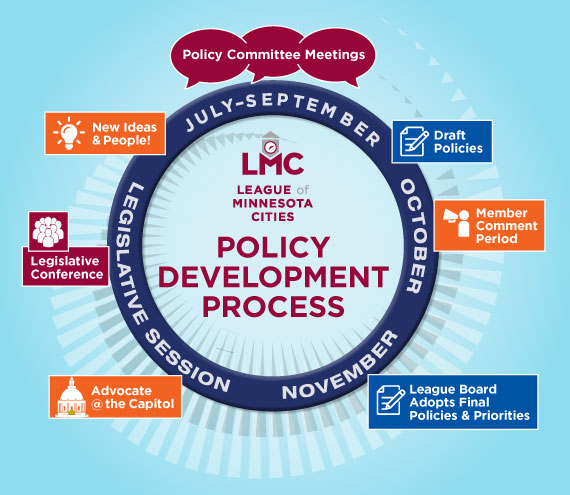Every year, the League convenes a member-driven legislative policy development process. An average of 150-200 city officials — councilmembers, mayors, and staff from across the state — gather to review existing policies, propose revisions, and draft new additions.
Policy committee members discuss a variety of viewpoints on city issues and come to consensus on policies that prioritize the principle of local control — the ability of each city government in Minnesota to be responsive to the unique needs of their community.
Learn more about the LMC policy committees and how you can participate
The final LMC City Legislative Policies document is the only comprehensive statewide advocacy agenda for all Minnesota cities. The policies serve as the foundation of the League’s legislative and administrative advocacy efforts during the legislative session.
This graphic shows the timing of each step in our policy development process:

Major events in the policy development process
- During the spring, all city officials are invited to volunteer for participation in policy committees. This opportunity is shared in League publications, social media, at League events, and in trainings. City officials can choose one or more committees based on interest or expertise.
- During the summer, the League’s four legislative policy committees meet to review the most recent legislative session and its relevance to current city policies; discuss, develop, and finalize policies; and make specific policy recommendations to the League’s Board of Directors.
- During the fall, a draft of the League’s legislative policies is published online and distributed to members for comments. The League Board reviews member input, amends policies as needed, and adopts the policies on behalf of members.
- During the legislative session, the League’s legislative policies are the basis of our advocacy efforts at the Capitol. Should any policies need to be added or amended during this time, the League’s Board of Directors will review and approve these changes as necessary.
